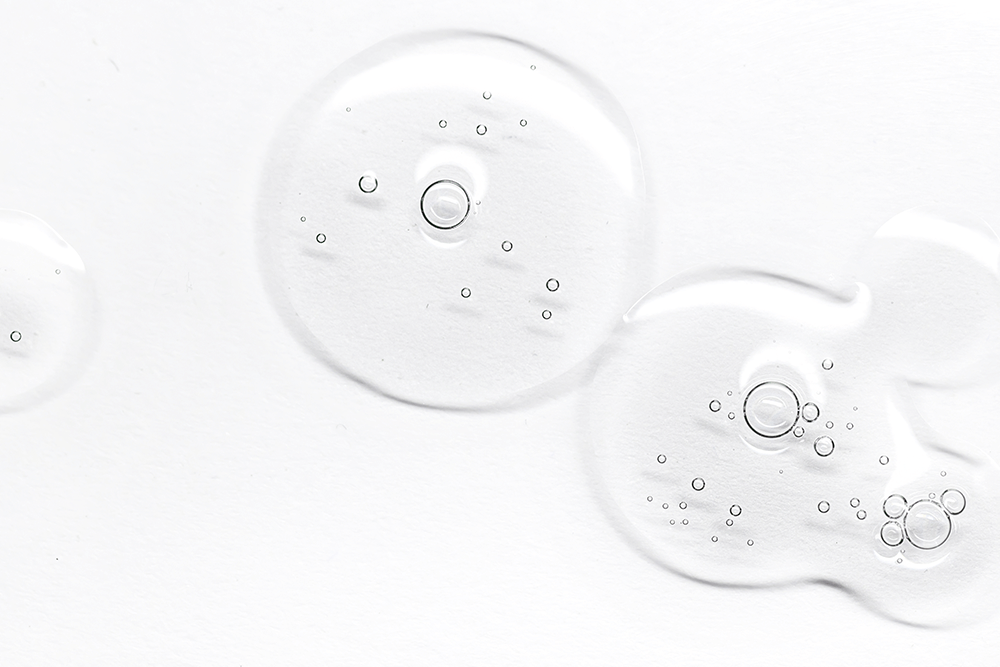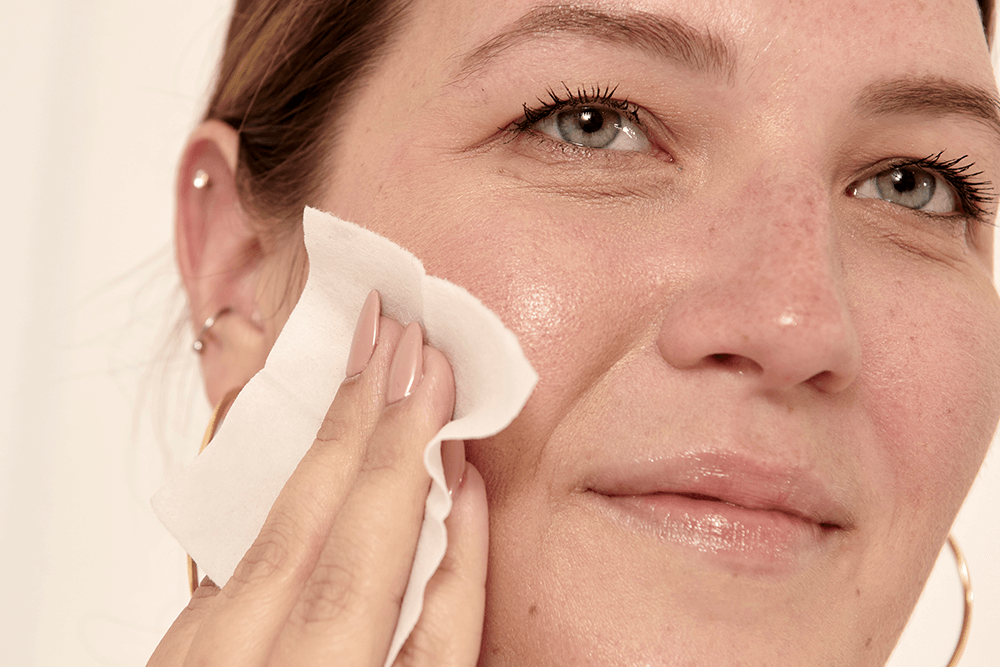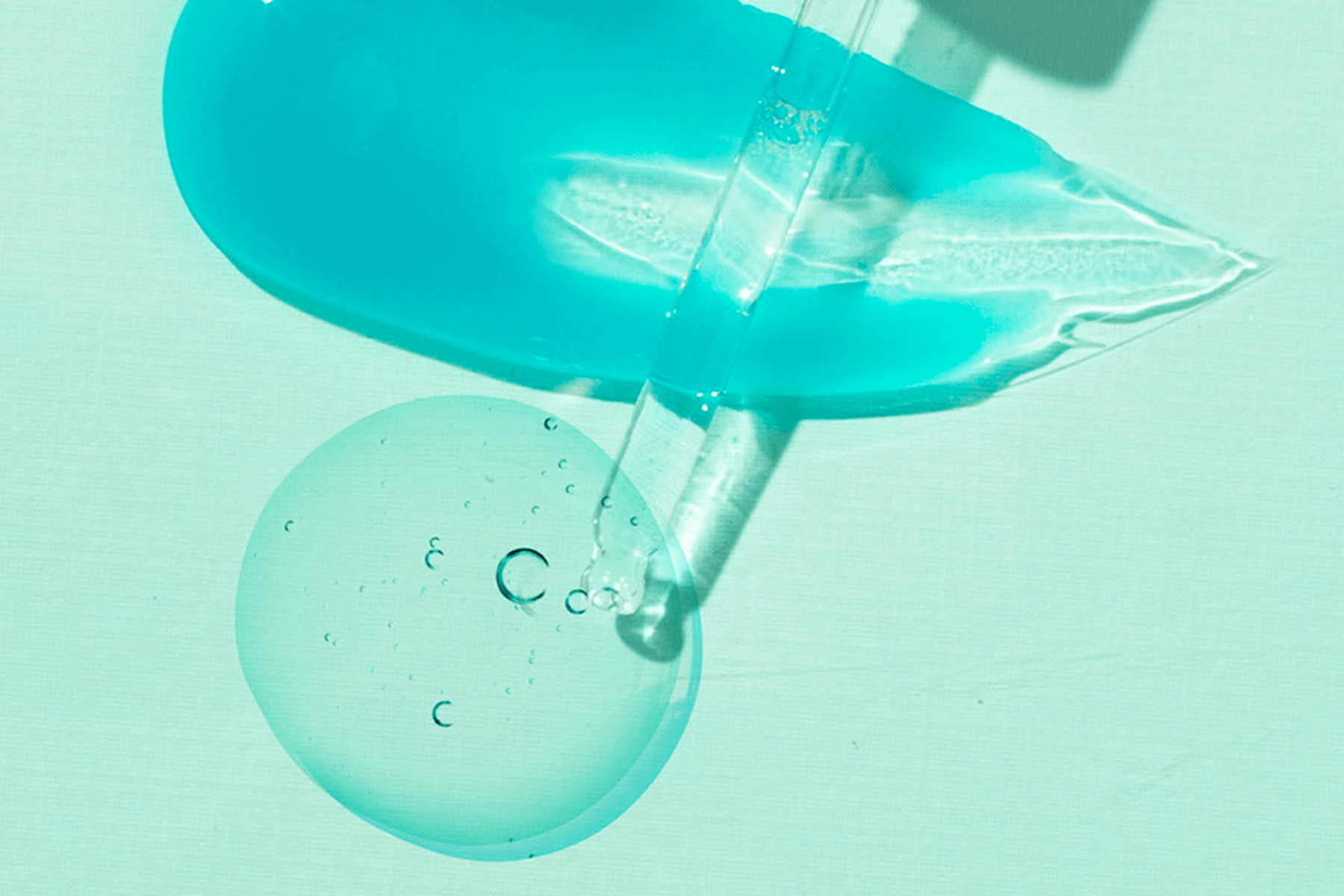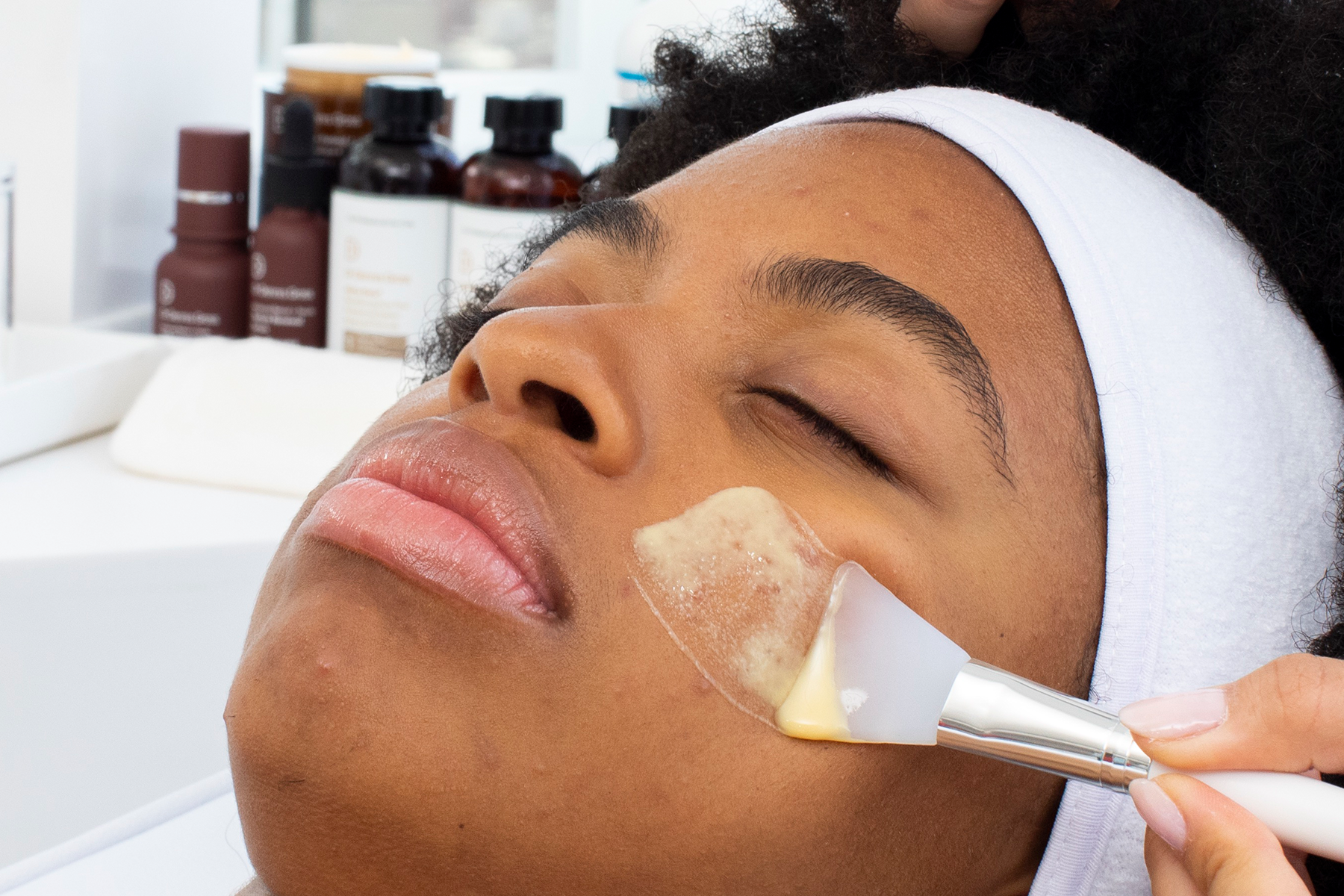The+Source
In conversations about skincare ingredients, salicylic acid gets mentioned almost as much as glycolic acid. Both are popular for their abilities to increase cell turnover and reduce the chances of acne, among other benefits. However, just like glycolic acid, salicylic acid isn’t for everyone. And that’s where the similarities end. It’s worth understanding more about what makes salicylic acid unique because this ingredient can be a gamechanger for certain skin types.
What is salicylic acid?
Salicylic acid belongs to the class of hydroxy acids known as beta hydroxy acids (BHAs). Salicylic acid, which comes from willow bark, is the most common BHA. While the category includes others, salicylic acid is far and away the most widely used BHA. Like all hydroxy acids, salicylic acid is a chemical exfoliant. This means that it loosens the glue that holds dead skin cells together, such as in a clump inside a pore. This type of exfoliation is gentler than the physical version, which involves ripping dead cells off skin via mechanical methods, like a scrub or brush.
How is salicylic acid different from other hydroxy acids?
When most people talk about hydroxy acids, they’re actually referring to alpha hydroxy acids (AHAs) – there are many more varieties of AHAs (think glycolic, lactic, citric, malic, and so on) than BHAs.
The main point of difference between AHAs and BHAs is that AHAs are water soluble, whereas BHAs are oil soluble. Despite some DIY skincare claims, it’s actually quite difficult to get anything into the skin (which is good news, considering the amount of germs and external irritants we come in contact with every day). A water-soluble ingredient can be absorbed by the water in your skin, which is closer to the surface. An oil-soluble ingredient, like salicylic acid, is absorbed by the lipid layer of your skin, which is deeper. As a result, salicylic acid is the ideal remedy for dissolving dead cells stuffed way down a pore and causing a blockage. And unlike AHAs, salicylic acid has the additional advantage of killing P. acnes bacteria, which also contributes to breakouts.
What does salicylic acid do for skin?
If you suffer from persistent skin eruptions, salicylic acid is going to be your saving grace. Although it can seem as though a pimple happens overnight, acne flare-ups gestate beneath the surface long before they come to a head (no pun intended). They’re often the result of sebum getting trapped inside a pore with the occasional P. acnes bacteria thrown in. Salicylic acid helps dissolve those clogs so oil can travel freely to the surface (as it’s meant to), instead of backing up. Plus, salicylic helps tamp down the proliferation of P. acnes bacteria. And if all that weren’t enough, salicylic acid is also an anti-inflammatory. So if you’re the type whose breakouts are accompanied by swelling and redness (and be honest, whose aren’t?), using salicylic acid will also have a more immediate, visible impact.
How is salicylic acid different from benzol peroxide?
Benzol peroxide is a topical antibacterial medication that quickly kills P. acnes bacteria and is often recommended as a treatment for acne sufferers. However, benzol peroxide tends to go a little “scorched earth” on bacteria. Irritation is a frequent side effect of this treatment, which can also dry out skin. Also, benzol peroxide only addresses bacteria, which is just part of the problem (remember those pore clogs?). Since its primary function is as a chemical exfoliant, salicylic acid remedies the cause of breakouts, not just the acne itself. It’s also a lot gentler on skin than benzol peroxide.
Which ingredients work well with salicylic acid?
AHAs and salicylic acid are like peanut butter and chocolate — perfect together. Combining the two targets multiple layers of skin, tackling surface issues as well as what lies beneath. Salicylic acid can increase skin dehydration or irritation (especially when you start using it), so products that also contain calming ingredients (such as green tea, chamomile, and aloe vera) are a wise, proactive measure. Although salicylic acid doesn’t make skin as sun sensitive as AHAs do, daily SPF 30 is also salicylic acid’s BFF.
Who should avoid using salicylic acid?
If your skin is already dry, you’re likely not suffering from the problems that salicylic acid solves. Super sensitive complexions, as well as those suffering from rosacea or eczema, should also seek out alternative remedies before picking up the salicylic acid. And as with any skincare ingredient you’re considering introducing into your routine, if you’re pregnant or nursing, you should check with your doctor first.
What are some great products that contain salicylic acid?
While you can find salicylic acid in many items in the Dr. Dennis Gross Skincare line, these are four we think deserve a special shout-out:
Dr. Dennis Gross Alpha Beta Extra Strength Daily Peel: This potent, patented two-step peel is a bestseller for a reason. A combination of seven AHAs and BHAs go to work flushing out pores and transforming skin texture, while soothing chamomile and green tea extract help ensure the results don’t go up in inflamed.
Dr. Dennis Gross DRx Blemish Solutions Acne Eliminating Gel: Pimples are no match for the two percent salicylic acid concentration in this lightweight gel. But while the salicylic acid obliterates blockages, the entire formula treats the complexion with kid gloves, thanks to the addition of skin-calming aloe vera and green tea.
Dr. Dennis Gross Advanced Retinol + Ferulic Texture Renewal Serum: Even though retinol and ferulic acid take center stage in this skin-smoothing serum, salicylic acid is one of the secret weapons working behind the scenes to help clear up blemishes. This power-packed product also contains bakuchiol and rambutan, which work with retinol and ferulic acid to boost collagen production, minimize the appearance of fine lines, and give the complexion a radiant, more even glow.
Dr. Dennis Gross Alpha Beta AHA/BHA Daily Cleansing Gel: This gel cleanser comes with a bit of a caveat. Instead of salicylic acid, Dr. Dennis Gross Alpha Beta AHA/BHA Daily Cleansing Gel is made with willow bark extract, a close cousin to salicylic acid. Even though both it and salicylic acid come from willow bark, willow bark extract is processed in a different way and not technically a BHA. It still has many of the same benefits that make salicylic acid such a star (like its pore-refining abilities), but it’s less likely to trigger irritation. As a result, this wash is one that’s good for all skin types, including reactive.
Discover Dr. Dennis Gross Skincare for All Your Skincare Needs
For more skincare tips from the experts at Dr. Dennis Gross, check out our blog’s newest content today. Shop the collection of Dr. Dennis Gross bestselling skincare backed by dermatologists.






